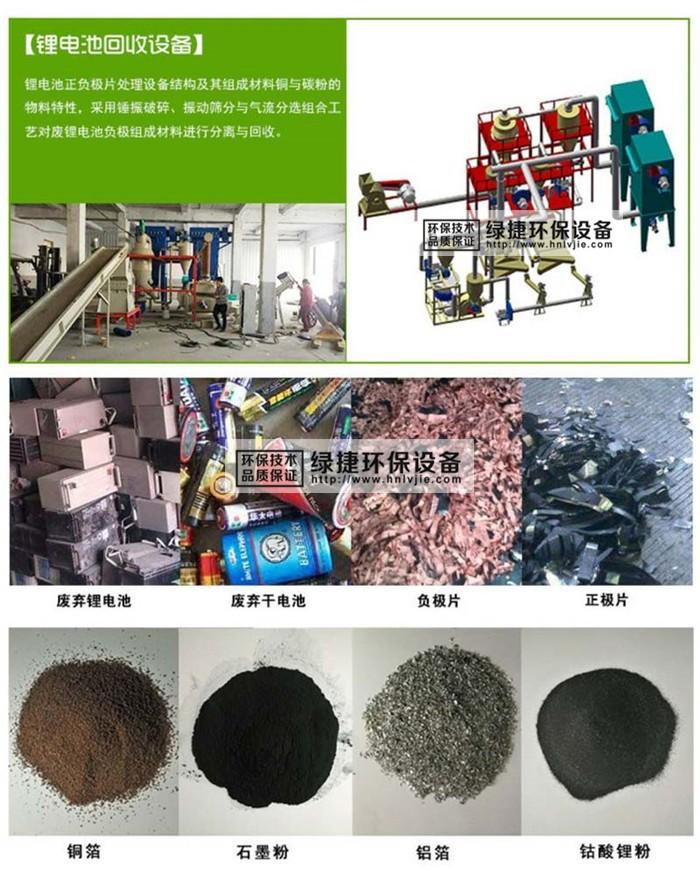Power lithium-ion batteries do not contain heavy metal pollutants such as Pb, Cd, Hg, etc., but scrapped power lithium-ion batteries still have certain harm to the environment. The monomer power lithium-ion battery mainly includes the positive electrode, the negative electrode, the separator, the electrolyte and the housing.
The cathode generally uses aluminum foil as the collector substrate, the front and back of the aluminum foil are coated with the positive electrode material, and the positive electrode material has a certain proportion of the positive electrode active substance (LFP, ternary material), conductive agent (acetylene black, carbon nanotubes, etc.) and binder (polyvinylidene difluoroethylene).

The negative electrode is generally made of copper foil as a collector substrate, and the front and back of the substrate are coated with the negative electrode material, and the negative electrode material is composed of a certain proportion of active substances (mostly graphite), dispersants (sodium carboxymethyl cellulose) and binders (styrene-butadiene rubber).
The electrolyte mainly contains organic solvents (vinyl carbonate, methyl ethyl carbonate, dimethyl carbonate, propylene carbonate, etc.) and electrolyte solutes (LiPF6, LiBF4, LiClO4, etc.). The above power lithium battery parts of the substance can chemically react with some substances in the environment to produce pollutants that are harmful to the environment, therefore, the recycling of scrapped power lithium battery battery materials is of great significance to environmental protection.
After the power battery is reported to the car for scrap, some batteries have cascade application value, such as applications in communication power stations, power grid energy storage and other fields. After the end of the cascade application, the scrapped power battery has material regeneration value, that is, dismantling and recovering valuable metal materials. The electrode material of the power battery contains valuable metals such as Li, Ni, and Co, and can achieve economic benefits through reasonable technical recycling.
At present, there are two main ways to deal with the power battery scrapped by electric vehicles, one is cascade utilization, and the other is disassembly and recycling. Cascade utilization is to extend the service life of the battery, when the capacity of the power battery is reduced to 80% of the initial capacity, it no longer meets the standards for the use of electric vehicles, but it can still be applied in other occasions, such as energy storage systems, power tools, etc. When the battery performance further drops below 50% of the initial capacity and can no longer be used, the battery is disassembled and the electrode material is recovered.
The scrap battery material dismantling and recycling process generally includes battery pack discharge, destructive dismantling of single batteries, crushing, sorting and electrode material recovery. The electrode material contains valuable metals, the recovery value is higher, and there are more processes for the recovery of electrode materials. The existing electrode material recovery technology mainly includes dry recovery technology, wet recovery technology and biological recovery technology. Bioregrieving technology is still in the laboratory stage, and the process requires a higher cost; Dry recycling technology is suitable for large-scale industrial production, and there are also related companies for production line production.